Paint the grass the color you want, it will always be grass – Gypsy proverb
‘When other children discover that I am a gypsy, they start cursing and shouting that we are worth nothing’, says 11-year-old Lindinho Cambão. ‘But we are not really that bad.’
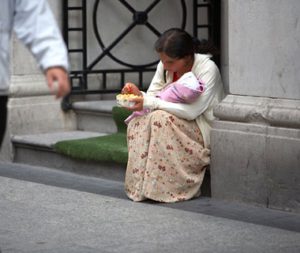 Prejudices about gypsies are very persistent. They are said to be stealing, begging, criminal and asocial.
Prejudices about gypsies are very persistent. They are said to be stealing, begging, criminal and asocial.
Originating from Northern India, the Roma migrated some 500 years ago to the Iberian Peninsula where they are marginalized and discriminated ever since. In Nazi Germany, gypsies were exterminated in concentration camps, just as Jews and homosexuals.
‘If a gypsy takes a seat on the bus, his fellow passenger will anxiously hold his bag’, says Idália Serão, MP of the Socialist Party, whose grandfather was Roma. ‘Ethnic minorities – like gypsies and blacks – are excluded in our society and only become visible when problems occur.’ Parliament, university and media are overwhelmingly white.’
In Portugal, 80% of the estimated 50.000 Roma has no regular income and 60% lives on benefit. The youth is poorly educated. Only a third has completed primary school and 15% is illiterate (more girls than boys). Girls tend to marry very early– at the age of 13-15 years – and get their first baby on average at 19.
Housing is dramatic with 20-30% of the families living in precarious conditions. Neighbourhoods like Bairro das Murtas in the center of Lisbon – without water and electricity – and Bairro da Torre in Loures, on the outskirts of the capital, are famous in that respect.
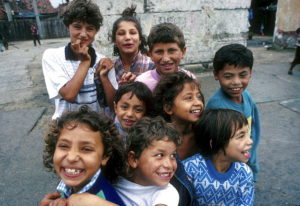
An investigation by the FRA (Fundamental Rights Agency) amongst gypsies in Europe last year, revealed that nearly half of the Roma population in Portugal feels discriminated, most notably in the areas of public service, work, and healthcare.
Pedro Calado – High Commissioner for Migration – sees progress in the integration, albeit changes are slow. ‘Visits to crèches increase as well as women’s participation in literacy courses. More than 90% of the Roma families have a GP nowadays and the vaccination coverage in children is over 70%.’
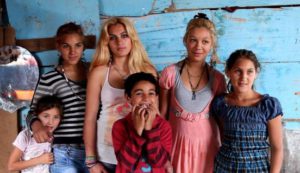 Last year Leonor Teles, a 23-year-old Portuguese film director whose father is Roma, won with her Rhoma Acans ( Gypsy Eyes) in Berlin the Golden Bear Award for the best short film.
Last year Leonor Teles, a 23-year-old Portuguese film director whose father is Roma, won with her Rhoma Acans ( Gypsy Eyes) in Berlin the Golden Bear Award for the best short film.
Bad people don’t sing – Gypsy proverb
BOM FIM DE SEMANA Have a great weekend


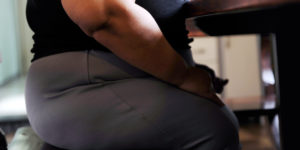 Obesity is Portugal’s biggest Public Health problem
Obesity is Portugal’s biggest Public Health problem  ‘That social inequality has an impact on health is beyond doubt.
‘That social inequality has an impact on health is beyond doubt. The average Portuguese eats for two, meaning almost 4000 calories per person per day!
The average Portuguese eats for two, meaning almost 4000 calories per person per day!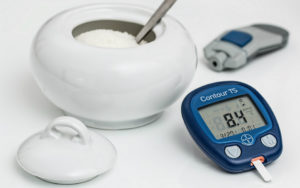 As a result of the obesity epidemic diabetes is very common and Portugal even has the highest prevalence of diabetes in Europe. One in every 7 citizens is affected and 25% of the people – who die in hospital – have diabetes. The risk to get the disease is four times higher in people, who haven’t completed primary school – a number twice as high in Portugal, than elsewhere in Europe.
As a result of the obesity epidemic diabetes is very common and Portugal even has the highest prevalence of diabetes in Europe. One in every 7 citizens is affected and 25% of the people – who die in hospital – have diabetes. The risk to get the disease is four times higher in people, who haven’t completed primary school – a number twice as high in Portugal, than elsewhere in Europe.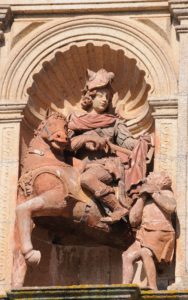 St. Martin’s Day is associated with the maturation of the year’s wine. It is a feast of Celtic roots that celebrates the end of summer and the start of winter.
St. Martin’s Day is associated with the maturation of the year’s wine. It is a feast of Celtic roots that celebrates the end of summer and the start of winter.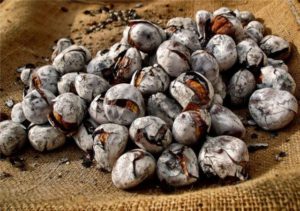 Groups of friends and families celebrate these warm days in November outdoors and used to gather around a bonfire, where they roasted chestnuts directly in the fire drank água-pé (water-foot), jeropiga, new wine and danced and sang. It was customary for girls to bring the chestnuts and for boys to bring the wine.
Groups of friends and families celebrate these warm days in November outdoors and used to gather around a bonfire, where they roasted chestnuts directly in the fire drank água-pé (water-foot), jeropiga, new wine and danced and sang. It was customary for girls to bring the chestnuts and for boys to bring the wine.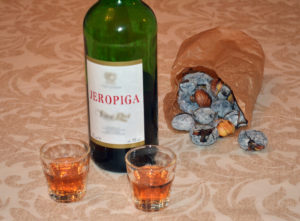 Água-pé (water-foot) is a light alcoholic beverage made by adding water to crushed grapes – after the juice is pressed out for wine – and letting it ferment for several days. Jeropiga – a sweet and strong fortified wine – is obtained in a similar way by adding brandy(aguardente) to the mash (pomace) of grapes, instead of water.
Água-pé (water-foot) is a light alcoholic beverage made by adding water to crushed grapes – after the juice is pressed out for wine – and letting it ferment for several days. Jeropiga – a sweet and strong fortified wine – is obtained in a similar way by adding brandy(aguardente) to the mash (pomace) of grapes, instead of water. They are all speakers on the Web Summit 2017 (November 6-9), Europe’s largest technology and digital culture conference to be held in the Altice/MEO Arena in Lisbon (
They are all speakers on the Web Summit 2017 (November 6-9), Europe’s largest technology and digital culture conference to be held in the Altice/MEO Arena in Lisbon (  This year the event will be even bigger. Networking and pitches (selling ideas ) are keywords, getting to know each other and looking for investment.
This year the event will be even bigger. Networking and pitches (selling ideas ) are keywords, getting to know each other and looking for investment. According to the Consumer Defence Association (DECO), two-thirds of the Portuguese schoolchildren carry backpacks, that are too heavy.
According to the Consumer Defence Association (DECO), two-thirds of the Portuguese schoolchildren carry backpacks, that are too heavy.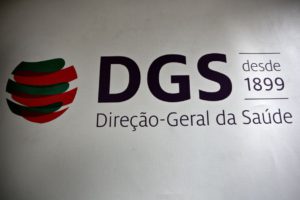 The parliamentarians moreover, propose a national awareness campaign to better monitor the weight of schoolbags by teachers, parents and students and the Directorate-General for Health will be asked to perform a study on the effect of the weight of the schoolbags on children’s health.
The parliamentarians moreover, propose a national awareness campaign to better monitor the weight of schoolbags by teachers, parents and students and the Directorate-General for Health will be asked to perform a study on the effect of the weight of the schoolbags on children’s health.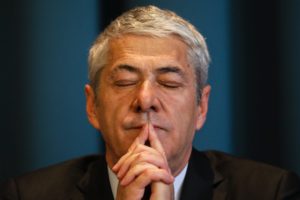 On November 21st at 10 PM, 2014 José Sócrates – ex-prime minister and former leader of the Socialist Party – was arrested at Lisbon’s airport, after flying home from Paris, under suspicion of money laundering, corruption, forgery and fiscal fraud.
On November 21st at 10 PM, 2014 José Sócrates – ex-prime minister and former leader of the Socialist Party – was arrested at Lisbon’s airport, after flying home from Paris, under suspicion of money laundering, corruption, forgery and fiscal fraud. It’s for the first time in the history of Portugal, that a former prime minister is accused of corruption during the execution of his function as head of state. But that’s not all. Operation Marqués also incriminates ex-CEO’s from big government agencies like Portugal Telecom and the state-owned bank Caixa Geral dos Depositos.
It’s for the first time in the history of Portugal, that a former prime minister is accused of corruption during the execution of his function as head of state. But that’s not all. Operation Marqués also incriminates ex-CEO’s from big government agencies like Portugal Telecom and the state-owned bank Caixa Geral dos Depositos.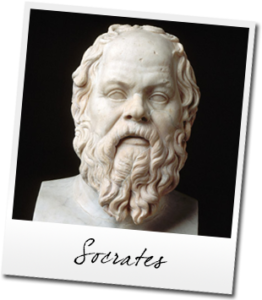
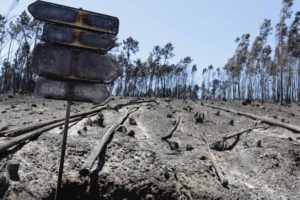 Large parts of the countries interior look spooky these days with charred trees and incinerated road signs.
Large parts of the countries interior look spooky these days with charred trees and incinerated road signs.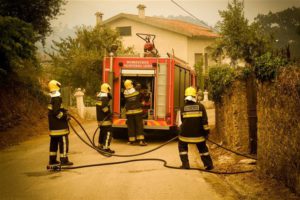 “Climate change causes many problems, but if I had to name the one that worries me most, it would be the increase in the number of wildfires – especially this summer as the fires caused many deaths in our country”, says a boy of the group of children – aged between 6 and 14 – from Leiria, seeking crowdfunding to sue 47 European countries for their failure to tackle climate change, threatening their right to life.
“Climate change causes many problems, but if I had to name the one that worries me most, it would be the increase in the number of wildfires – especially this summer as the fires caused many deaths in our country”, says a boy of the group of children – aged between 6 and 14 – from Leiria, seeking crowdfunding to sue 47 European countries for their failure to tackle climate change, threatening their right to life. “Tragedies like this are becoming the new norm because governments are failing to make the necessary cuts to their greenhouse emissions”, according to a spokesman from GLAN.
“Tragedies like this are becoming the new norm because governments are failing to make the necessary cuts to their greenhouse emissions”, according to a spokesman from GLAN.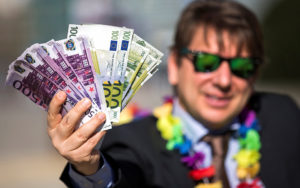
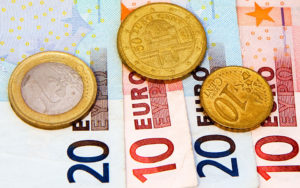 ‘To think that nowadays in our country one million people – that is 10% of the population – regular have to skip meals due to financial problems is a shame’, says Carla Lopes, a nutritionist at the Public Health Institute of the University of Porto.
‘To think that nowadays in our country one million people – that is 10% of the population – regular have to skip meals due to financial problems is a shame’, says Carla Lopes, a nutritionist at the Public Health Institute of the University of Porto.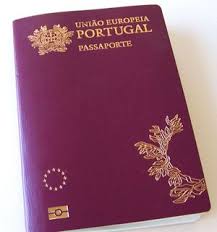 For wealthy people, there is a far much easier way. Portugal’s ‘golden residence permit’ – visto gold – requires an investment of 500,000 euros in property in exchange for permanent residency and visa-free travel through Europe’s Schengen area.
For wealthy people, there is a far much easier way. Portugal’s ‘golden residence permit’ – visto gold – requires an investment of 500,000 euros in property in exchange for permanent residency and visa-free travel through Europe’s Schengen area.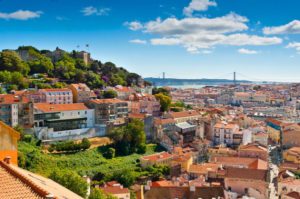 One of them is Otávio Azevedo, former president of Brazil’s second-largest construction company, Andrade Gutierrez. He received an 18-year sentence last year, after admitting a string of corruption offenses. Two years before his arrest he bought a € 1.4 million property in Lisbon and subsequently applied for a golden visa in 2014.
One of them is Otávio Azevedo, former president of Brazil’s second-largest construction company, Andrade Gutierrez. He received an 18-year sentence last year, after admitting a string of corruption offenses. Two years before his arrest he bought a € 1.4 million property in Lisbon and subsequently applied for a golden visa in 2014.